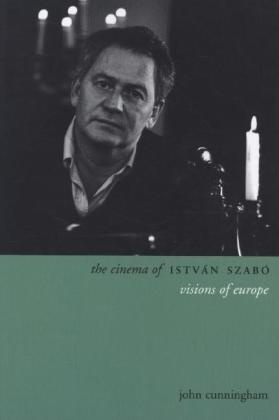Ulteriori informazioni
István Szabó is one of Hungarys most celebrated and best-known film directors, and the only Hungarian to have won an Academy Award for Best Foreign Language Film, for Mephisto (1981). In a career spanning over five decades Szabó has relentlessly examined the place of the individual in European history, particularly those caught up in the turbulent events of Central Europe and his own native Hungary. His protagonists struggle to find a place for themselves, some meaning in their lives, security and a sense of being, against a background of two world wars (Colonel Redl, Confidence), the Holocaust (Sunshine), the Hungarian Uprising and the Cold War (Father, 25 Firemans Street, Taking Sides). This is the first English-language study of all his feature films and uses material from interviews with Szabó and his collaborators.
Sommario
AcknowledgementsIntroduction: Beginnings1. Born into the Storm2. Growing Up, Film School and 19563. The Early Films: The Age of Daydreaming ( Almodozasok kora); Father ( Apa--egy hit naploja); Lovefilm ( Szerelmesfilm)4. The 'Budapest' Films: Films: Budapest, Why I Love It ( Budapest, amiert szeretem); 25 Fireman's Street ( Tuzolto utca 25); Budapest Tales ( Budapesti mesek); City Map ( Varosterkep) and Confidence ( Bizalom) 5. Tales from Mitteleuropa: Mephisto; Colonel Redl; Hanussen6. New Europe, New Hungary, New Problems: Meeting Venus and Sweet Emma, Dear Bobe ( Edes Emma, draga Bobe) 7. 'The man who comes from somewhere else is always suspect': Sunshine8. To Go or Stay? Taking Sides9. Adaptations: Being Julia; Relatives; and The Door10. The Controversy Surrounding the Events of 1957 and After11. Szabo, Hungarian Cinema and the Question of Censorship--a Note12. Some ConclusionsNotesFilmographyBibliographyIndex
Info autore
John Cunningham is the author of Hungarian Cinema: From Coffee House to Multiplex (2005) and many other articles and essays on Eastern European and particularly Hungarian cinema. He is now retired, but most recently taught Film Studies at Sheffield Hallam University, UK.
Riassunto
The first English-language study of all Szabó's feature films and uses material from interviews with him and his collaborators
Relazione
"The first book-length study in English of one of the world's greatest directors, The Cinema of István Szabó: Visions of Europe is a probing, much-needed contribution to film scholarship that will also appeal to readers interested in representations of Central European culture, profoundly marked by historical developments before and after the fall of the Berlin Wall." - Catherine Portuges, University of Massachusetts

